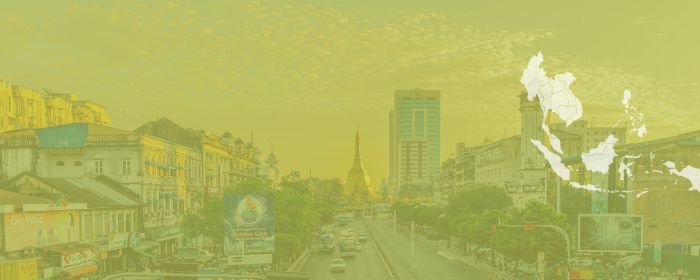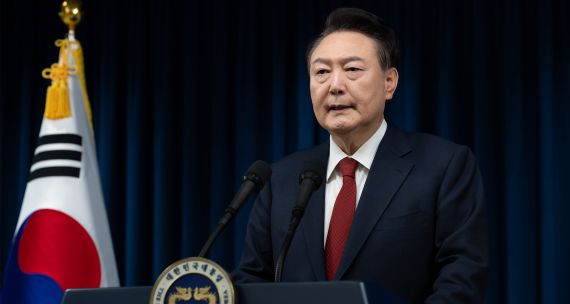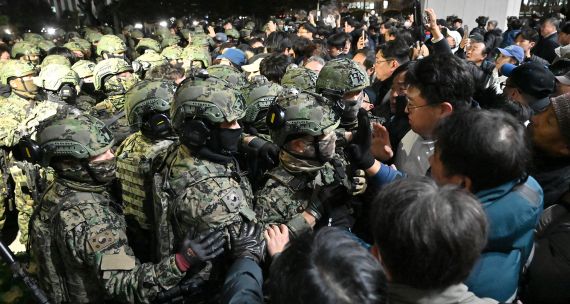The Takeaway
Myanmar’s military junta imposed expansive martial law in townships dominated by anti-military resistance groups across the country on February 2, just one day after the military government extended the countrywide state of emergency. The junta’s latest move, implemented to “ensure stability” before elections, foreshadows further persecution and political instability in the country.
In Brief
Myanmar was poised to go to the polls following the expiration of a two-year state of emergency enforced by the junta since the February 2021 coup d'état. But on February 1, 2023, the junta extended the state of emergency for another six months, citing the need to maintain law and order before holding elections, and blaming anti-military resistance groups for attempting to thwart the electoral process. A day later, the junta imposed expansive martial law in 37 townships across eight of the 14 regions and states in the country, including the regions of Sagaing, Magwe, Bago, Tanintharyi, and the states of Chin, Kayah, Kayin, and Mon. Under martial law, these townships will be placed under the control of regional commanders of the Myanmar armed forces, also known as the Tatmadaw. Criminal cases will be held in military courts with no possibility of appealing the verdicts, with exceptions only for those sentenced to the death penalty.
Implications
This is not the junta’s first imposition of martial law, but the scale is much wider this time, encompassing areas seeing frequent clashes between the army and the rebels. The move indicates the junta’s desperation to rein in the insurrection and highlights its struggle to control certain parts of the country. A report by the Special Advisory Council for Myanmar, an independent group of international experts, stated that, as of September 2022, the junta had full control of only 17 per cent of the country, with the remaining areas either under contestation or under the control of the National Unity Government’s (NUG) People’s Defence Force (PDF) and their armed ethnic organization allies. Since the coup, the junta’s violent crackdown on opposition groups has only worsened the country’s national security crisis, with more civilians taking up arms and joining the insurrection.
While the junta has called imposing martial law a “necessary” act to stabilize the national political situation before the elections, the NUG has condemned the act, stating that it will only increase mass arbitrary killings, torture, and arrests of anyone perceived as a “threat” to the junta’s rule. Myanmar’s envoy to the United Nations has also condemned the move and has urged ASEAN member states, and the wider international community, to pressure the junta to end the violence through stringent sanctions and extra due diligence in business dealings to curb money laundering for terrorism. Foreign businesses and investors who hoped to start anew, or scale up operations, following the elections are now wary of the deadlocked situation. A nationwide election seems unlikely, but some observers posit that the junta could hold a staggered election, like the one held between 1951-52, as the conflict is flaring up at different intervals, intensities, and locations across the country. The outcome of a junta-sanctioned election is unlikely to gain international recognition, as many will inevitably question the fairness of the electoral process.
What's Next
- Indonesia mediates, dispatches a special envoy
President Joko Widodo announced on February 2 that Indonesia will dispatch a renowned general as a special envoy to Myanmar to mediate a potential peace settlement between warring parties. Bloomberg News, citing unnamed sources, reported that Minister Luhut Binsar Pandjaitan, who is also a retired four-star general, is the top pick for the role. However, his appointment is yet to be officially announced. As chair of ASEAN 2023, Indonesia is keen to resolve the crisis.
- Further economic woes ahead
Western governments as well as the wider international community have condemned the junta’s extension of the state of emergency and its imposition of martial law. With more tough sanctions likely on the horizon, Myanmar’s economic growth could be further hampered as business is disrupted and prospective foreign investors exit in exasperation. These setbacks would only add to the plight of the people of Myanmar and their livelihoods, and exacerbate the economic woes of a country that has struggled to recover from COVID-19-related economic shocks.
- Opium production and trade on the rise
Economic disruption following the 2021 coup has led to a dramatic increase in opium production in Myanmar’s remote, conflicted, and often underdeveloped areas. Since the coup, national and international drug eradication efforts in Myanmar have been disrupted, enabling drug traffickers to trade and export large amounts of opium and heroin from the region. With no policy reversal from the junta expected, the toxic cocktail of political instability and surging narcotics production will pose a risk to the security of Myanmar’s immediate neighbours and the region as a whole.
• Produced by CAST’s Southeast Asia team: Stephanie Lee (Program Manager); Alberto Iskandar (Analyst); Saima Islam (Analyst); and Tim Siao (Analyst).



